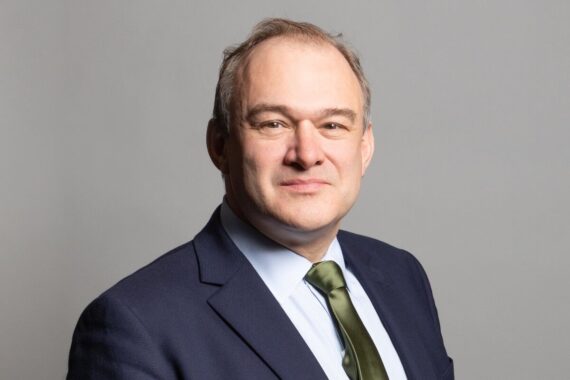The Liberal Democrats would set up a ‘Strategic Small Surgeries Fund to ‘sustain services in rural and remote areas’, according to its election manifesto.
The document, published yesterday, also pledged to ‘remove’ existing ‘top-down bureaucracy’ to ‘let practices hire the staff they need’.
Health policy experts said the plans were ‘ambitious’ but ‘light on detail’.
In all, the Lib Dems would invest a £1bn package to ‘improve GP services’, including implementing a ‘ten-year plan’ for hospital and primary care estates ‘to end the scandal of crumbling roofs, dangerous concrete and life-expired buildings’.
The pledges also mentioned increased focus on GP training and retention including by ‘establishing a properly independent pay review body’; and setting out a ‘a ten-year retention plan’.
The manifesto also pledged to review the pharmacy funding model and ‘build on’ Pharmacy First, ‘to give patients more accessible routine services and ease the pressure on GPs’.
Lib Dems also want to ‘free up’ GP time by ‘by giving more prescribing rights and public health advisory services to qualified pharmacists, nurse practitioners and paramedics’.
The manifesto also mentioned plans for a ‘universal 24/7 GP booking system’.
This is in addition to other measures already announced, including giving patients a legal right to see their GP within seven days, or in 24 hours in case of an emergency; increasing the number of GPs by 8,000; and a new policy to ensure all patients over 70 and those with long-term conditions see the same GP for every appointment.
The party said it would fund the offer by ‘reversing the tax cut given to the big banks’, raising £4bn, and ‘closing the loopholes’ on Capital Gains Tax used by the top 0.1% wealthiest in the country, which would save £5bn.
The tax measures would provide ‘an additional £9bn a year’ for health and social care services, it said.
In addition, it wants a levy on profits made by tobacco companies, that would be reinvested in smoking cessation services.
Lib Dem leader Ed Davey said: ‘The Liberal Democrats would bring back the family doctor, with 8,000 extra doctors in general practice and a legal right to see your GP in a week or 24 hours if in urgent need.
‘We would also bring in a rescue fund to protect GP practices in rural areas after years of closures that have left communities struggling to access primary care.
‘Patients are being catastrophically let down as millions struggle to contact their GP and get an appointment when they need one. Many people are waiting days to hear back from their GP practice, often anxious or in pain.’
Lib Dems’ health pledges include
• Give everyone the right to see a GP within seven days, or within 24 hours if they urgently need to, with 8,000 more GPs to deliver on it.
• Guarantee access to an NHS dentist for everyone needing urgent and emergency care, ending DIY dentistry and ‘dental deserts’.
• Improve early access to mental health services by establishing mental health hubs for young people in every community and introducing regular mental health check-ups at key points in people’s lives when they are most vulnerable to mental ill-health.
• Boost cancer survival rates and introduce a guarantee for 100% of patients to start treatment for cancer within 62 days from urgent referral.
• Help people to spend five more years of their life in good health by investing in public health.
• Give everyone the right to see a GP or the most appropriate practice staff member within seven days, or within 24 hours if they urgently need to, by:
• Increasing the number of full-time equivalent GPs by 8,000, half by boosting recruitment and half from retaining more experienced GPs.
• Giving everyone 70+ and everyone with long-term health conditions access to
a named GP.
• Freeing up GPs’ time by giving more prescribing rights and public health advisory services to qualified pharmacists, nurse practitioners and paramedics.
• Introducing a universal 24/7 GP booking system.
• Removing top-down bureaucracy to let practices hire the staff they need and invest in training.
• Establishing a Strategic Small Surgeries Fund to sustain services in rural and remote areas.
Source: Lib Dems
The King’s Fund chief executive Sarah Woolnough said the plans were ‘good on ambition’ but ‘light on detail’.
She added: ‘The aim to speed up access to GP appointments by recruiting 8,000 more GPs is a laudable ambition, but as the current government has found, recruiting more GPs and retaining existing ones is not easy, and without more detail on how the party would achieve this goal, it is hard to see how their promise of faster access to GP appointments can be met.’
Nuffield Trust chief executive Thea Stein pointed out that funding proposed as part of the manifesto ‘appears insufficient’.
She said: ‘It’s unclear from the costings document exactly what the £8.35 bn pledged to cover the NHS and care pledges is based on.
‘Just freezing the NHS budget in real terms would require more money than this by 2028/29. Even in the most generous interpretation, a real-terms £8.35bn increase above the planned budget for this year, would result in annual increases in the region of 2.8%.’
She said that the pledge on general practice and dentistry suggest the Lib Dems ‘are open to making these kinds of difficult decisions’, with dental check-ups offered to the most vulnerable and access to a named GP for the over 70s or those with long-term conditions.
‘This is brave policymaking and should be applauded in the context of straitened finances. But the target of 8000 GPs is very stretching, and the party must not fall into the trap of expecting dental contract reform to be a silver bullet or be able to attract dentists back from the private sector quickly,’ she added.
Last year, the Lib Dems called on then health secretary Steve Barclay to launch ‘a GP rescue plan’, including a campaign ‘to urge retired GPs back to the workforce’.















